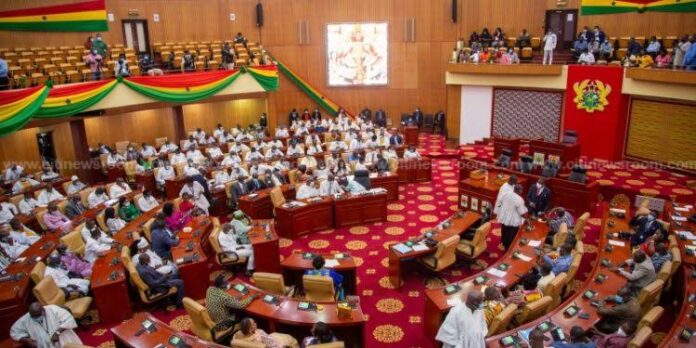In a bold move that signals a shift in Ghana’s fiscal direction, Parliament has officially passed the Income Tax (Amendment) Bill, 2025, putting an end to several controversial taxes, including the Betting Tax and the 1.5% withholding tax on unprocessed gold.
The decision comes after months of public outcry, particularly from the youth and informal sector players, who had described the betting tax as both burdensome and tone-deaf to the economic struggles of ordinary Ghanaians. Initially introduced to increase government revenue and discourage gambling, the tax instead sparked resentment and was widely regarded as a punitive measure.
Wednesday’s parliamentary session marked a turning point as lawmakers overwhelmingly backed the repeal, fulfilling a campaign promise made by the National Democratic Congress (NDC) during the 2024 general elections. Finance Minister Dr. Cassiel Ato Forson, who presented the 2025 budget earlier this month, had proposed the removal as part of a broader effort to ease the tax burden on citizens.
“This is more than just a fiscal adjustment — it’s a reflection of the people’s voice and a recalibration of our approach to economic recovery,” Dr. Forson said on the parliamentary floor.
The scrapping of the Betting Tax, along with taxes on gaming and lotteries, is now awaiting presidential assent by President John Dramani Mahama to officially take effect.
End of E-Levy and Other Repeals
In a parallel move, Parliament also approved the repeal of the Electronic Transaction Levy (E-Levy) after passing the Electronic Transaction Levy (Repeal) Bill, 2025. Introduced in March 2022, the E-Levy applied a tax on digital financial transactions, but failed to generate the expected revenue and was criticized for stifling financial inclusion and mobile money usage.
Ghanaians across all sectors had long expressed frustration with the tax, seeing it as an added layer of hardship in an already difficult economic climate.
Addressing Parliament, Dr. Forson also confirmed the repeal of a 10% tax on lottery winnings and the emissions levy, noting that these steps were aligned with the government’s goal to streamline the tax system and stimulate economic growth.
Broader Economic Strategy and Social Protection
Beyond tax reforms, the 2025 budget introduced a raft of social protection measures. Dr. Forson emphasized that the government remained committed to cushioning vulnerable populations amid ongoing economic challenges.
Also, read: Tanzania Breaks New Ground with Launch of Robotic Brain Surgery at MOI
The Livelihood Empowerment Against Poverty (LEAP) programme is set to expand its reach, with the number of beneficiary households increasing from 350,000 to 400,000 by July 2025. The allocation for LEAP has also been boosted by 30.8%, from GH¢728.8 million to GH¢953.5 million.
The School Feeding Programme is receiving a significant increase as well, with the daily feeding cost per pupil raised by 33%.
“These measures are not just numbers — they are a lifeline to many families across Ghana. Our goal is to build an economy that works for everyone, especially the most vulnerable,” Dr. Forson told lawmakers.
He also reaffirmed the government’s intention to review and potentially abolish the COVID-19 levy as part of a broader Value Added Tax overhaul.
Tackling Economic Realities with Austerity and Unity
While celebrating the tax reliefs, Dr. Forson did not shy away from the country’s lingering economic struggles. He acknowledged the pain caused by currency depreciation, high inflation, surging utility prices, and rising interest rates — and called for unity and shared sacrifice.
“The crisis is far from over. We must be willing to make tough choices for the sake of our future,” he urged.
In line with these austerity measures, President Mahama has committed to trimming the number of ministers from 123 to just 60. Additionally, all first-class travel by government officials has been banned, and budget cuts are being implemented across the Office of the President.
With these sweeping reforms, Ghana’s government is sending a clear message: the path to recovery must balance fiscal responsibility with empathy and inclusivity. And for many Ghanaians, the repeal of unpopular taxes offers a glimmer of hope that change is not only promised — it is finally being delivered.

